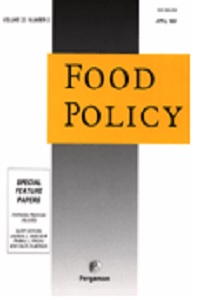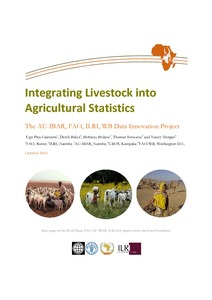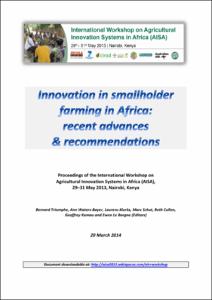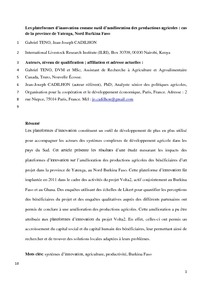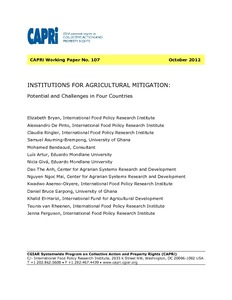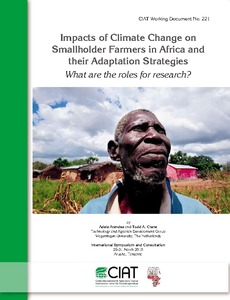agriculture
AGROVOC URI:
Investing in agricultural water management to benefit smallholder farmers in Ethiopia.
This Working Paper summarizes research conducted as part of the AgWater Solutions Project in Ethiopia between 2009 and 2012. Researchers from the AgWater Solutions Project conducted a situation analysis in 2009, which identified a range of options deemed to be technically feasible, affordable and practical for smallholder farmers: water-lifting technologies, groundwater for agriculture and manual well drilling, community-based watershed management, on-farm water storage, small reservoirs and rainwater harvesting.
Irrigated agriculture: Areas of research for development
Integrating livestock feeds and production systems into agricultural multi-market models: The example of IMPACT
The various ways in which livestock production systems can be incorporated into economic, partial-equilibrium, multi-market models are presented, and the challenges outlined. A particular focus and illustrative case is livestock feed. Foremost among the challenges is the reconciliation of scientific understanding of livestock feed requirements and production characteristics with the available national data. Another challenge is in estimating herd structures.
Integrating research on food and the environment: An exit strategy from the rational fool syndrome in agricultural science
The thesis of this paper is that the "rational fool" syndrome can be applied to mainstream public sector agricultural research that is conducted in a way that is rational in the short term, but acts against its own long-term viability. Historically, a main concern of such research has been to maximize high levels of food production together with low prices to consumers. As a result, mainstream agricultural science has ignored negative impacts or externalities, which has contributed to a crisis of credibility with the general public and politically sensitive decision makers.
Innovation platforms as a tool for improving agricultural production: The case of Yatenga province, northern Burkina Faso
Innovation platforms are a development tool used increasingly to support the stakeholders in complex systems for agricultural development in developing countries. This article presents the results of a study measuring the impact of innovation platforms on improving agricultural production for the beneficiaries of a project in Yatenga province, northern Burkina Faso. This innovation platform was installed in 2011 as part of the activities of the Volta2 project, operating jointly in Burkina Faso and Ghana.
Institutions for Agricultural Mitigation: Potential and Challenges in Four Countries
The agriculture sector has great potential to contribute to the mitigation of greenhouse gas emissions through changes in agricultural management and land use. However, the technical potential for agricultural mitigation has yet to translate into actual emission reductions due to considerable constraints to the generation of emission offsets through agricultural projects.
Implementing REDD+ (Reducing Emissions from Deforestation and Degradation): evidence on governance, evaluation and impacts from the REDD-ALERT project
The REDD-ALERT (Reducing Emissions from Deforestation and Degradation from Alternative Land Uses in the Rainforests of the Tropics) project started in 2009 and finished in 2012, and had the aim of evaluating mechanisms that translate international-level agreements into instruments that would help change the behaviour of land users while minimising adverse repercussions on their livelihoods. Findings showed that some developing tropical countries have recently been through a forest transition, thus shifting from declining to expanding forests at a national scale.



